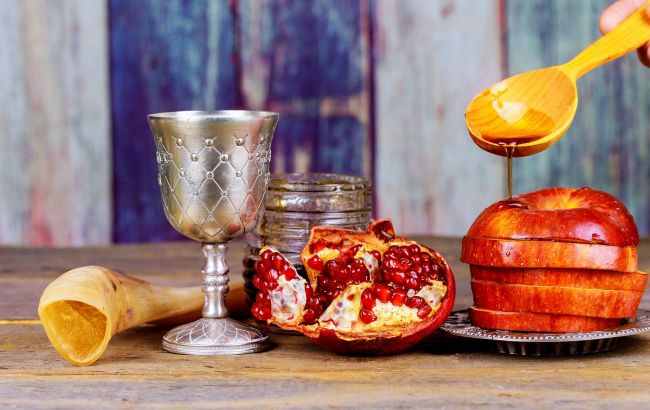What to give for Rosh Hashanah: Traditional gifts for Jewish New Year
 What is gifted for Rosh Hashanah and what these gifts symbolize (photo: Getty Images)
What is gifted for Rosh Hashanah and what these gifts symbolize (photo: Getty Images)
Rosh Hashanah is the Jewish New Year, which in 2025 will be celebrated on September 22–23. The holiday symbolizes the beginning of a new cycle, a time of renewal and good wishes. As with any holiday, gifts play an important role, carrying the symbolism of abundance, joy, and good intentions.
RBC-Ukraine explains which gifts are traditionally given for Rosh Hashanah and what meaning they hold.
Traditional food gifts
Most often, honey is given for Rosh Hashanah — a symbol of a sweet life in the new year. Typically, people choose not just a jar or pot of honey, but an entire set with special dishes.
Apples are also popular, as it is customary to dip them in honey while wishing for a sweet and happy future.
Pomegranates are frequently gifted as well, since it is believed that the number of seeds in the fruit corresponds to the number of good deeds a person can perform.
Gift baskets are also prepared, filled with all the foods that carry symbolic meaning for Rosh Hashanah.
Symbolic gifts
A festive basket often includes challah (traditional round bread), which symbolizes completeness and eternity.
In some communities, it is customary to give fish or even a fish head — a sign of abundance and a wish "to be at the head and not at the tail."
Modern gifts
Today, in addition to traditional foods, people often choose more universal presents. These may include assortments of sweets, wine, olive oil, elegant tableware, or souvenirs with holiday symbolism. Books or Jewish calendars are also popular gifts.
The main thing is that the gift comes with good intentions and does not contain foods prohibited by kashrut.
A Rosh Hashanah gift is not just an item but also a wish for a good, bright, and sweet year. That is why the true value of any gift lies in sincere words and warm intentions.
You may also be interested in:
Sources: My Jewish Learning, Chabad, Jewish Virtual Library.

